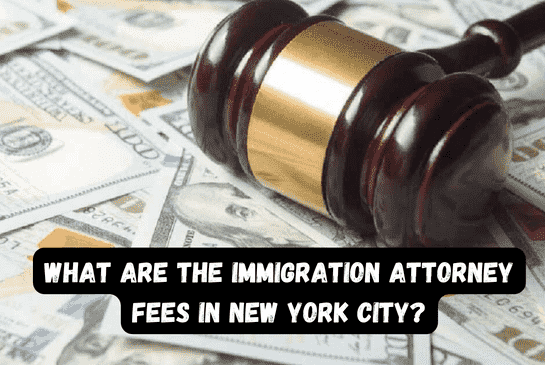Introduction
Temporary Protected Status (TPS) is a critical immigration relief program offered by the United States government. It provides temporary legal status and protection to foreign nationals who are unable to return to their home countries due to ongoing armed conflicts, natural disasters, or other extraordinary and temporary conditions that would pose a threat to their safety and well-being. TPS is a lifeline for many individuals and families facing dire circumstances in their home countries.
History of Temporary Protected Status
TPS was first established in 1990 through the Immigration Act. The legal framework surrounding TPS allows the Secretary of Homeland Security to designate countries for temporary protection when conditions in those nations prevent their citizens from safely returning. The program was created as a response to humanitarian crises and was intended to be a temporary measure to safeguard individuals while their home countries recovered from upheavals.
Qualification Criteria for Temporary Protected Status
To be eligible for TPS, individuals must meet specific criteria set by the Department of Homeland Security. These criteria include being a national of a designated country, having continuous residence in the United States since a specific date, and meeting specific registration and filing deadlines. Furthermore, individuals must not have committed certain crimes or pose a threat to national security.
The Department of Homeland Security designates countries for TPS based on several factors, including ongoing armed conflicts, environmental disasters, epidemics, or other extraordinary circumstancesthat prevent the safe return of individuals to their home countries. These conditions must be deemed temporary and not suitable for individuals to return without risking their safety or well-being.
Application Process for Temporary Protected Status
If an individual believes they meet the eligibility criteria for TPS, they must apply to the United States Citizenship and Immigration Services (USCIS). The application process typically involves completing specific forms, providing supporting documentation, and paying required fees. It is crucial to adhere to the designated registration and filing deadlines to ensure eligibility.
The USCIS carefully reviews each TPS application, considering the individual’s eligibility and the circumstances in their home country. If approved, the individual will be granted temporary protected status and receive an employment authorization document (EAD) that allows them to legally work in the United States during the designated TPS period.
Benefits of Temporary Protected Status
Temporary Protected Status offers several benefits to individuals granted this status. Firstly, it provides protection against deportation and ensures that individuals can remain in the United States legally. Additionally, TPS holders are eligible to apply for employment authorization, allowing them to work and support themselves and their families.
Furthermore, TPS may also grant individuals the ability to travel outside the United States under certain circumstances. This travel permission, known as advance parole, is essential for TPS holders who may need to visit their home country temporarily or have other valid reasons for international travel.
Limitations of Temporary Protected Status
It is crucial to understand that Temporary Protected Status is indeed temporary. The protection and benefits granted to individuals with TPS are contingent upon the designation and the specific period assigned to their country. When the designated period expires or if the designation is terminated, TPS holders are expected to return to their home countries unless they have another legal basis to remain in the United States.
Moreover, TPS does not provide a direct path to permanent residency or citizenship. While TPS holders may be able to adjust their status through other means, such as marriage to a U.S. citizen or sponsorship by an employer, TPS alone does not lead to permanent residency. It is essential for individuals with TPS to explore other potential immigration avenues to secure their long-term legal status in the United States.
Countries Designated for Temporary Protected Status
Over the years, several countries have been designated for Temporary Protected Status due to ongoing crises. These designations are made by the Department of Homeland Security after assessing the conditions in each country. Some of the countries that have been granted TPS include El Salvador, Haiti, Honduras, Nepal, Somalia, South Sudan, Syria, and Yemen, among others. Each country’s designation is reviewed periodically to determine if the temporary conditions still exist.
Current Issues and Controversies Surrounding Temporary Protected Status
In recent years, Temporary Protected Status has been a topic of debate and controversy. Changes in political landscapes and policy shifts have raised concerns about the future of TPS and its beneficiaries. Some argue for the termination of TPS designations, claiming that conditions in certain countries have improved enough for individuals to safely return. However, proponents of TPS emphasize the ongoing challenges faced by these countries and the potential harm to individuals forced to return prematurely.
The uncertain future of TPS has caused anxiety and stress for many individuals and families who rely on this protection. Advocacy groups, legal organizations, and affected individuals continue to push for legislative solutions that would provide more permanent relief and stability for TPS beneficiaries.
Role of Temporary Protected Status in Immigration Policies
Temporary Protected Status is just one component of the broader immigration policies in the United States. It serves as a humanitarian program designed to offer temporary relief to individuals facing exceptional circumstances in their home countries. TPS operates alongside other forms of relief, such as asylum, refugee status, and other immigration programs.
It is important to note that TPS does notprovide a direct path to permanent residency or citizenship. Instead, it offers temporary protection and benefits to individuals while the conditions in their home countries are deemed unsafe or unstable. It is essential to understand the distinctions between TPS and other immigration programs to navigate the complexities of the immigration system effectively.
The Human Impact of Temporary Protected Status
Behind the legal framework and policies surrounding Temporary Protected Status, there are real people whose lives are affected by this program. TPS offers a lifeline to individuals who have fled their home countries due to armed conflicts, environmental disasters, or other extraordinary circumstances. It provides them with an opportunity to rebuild their lives, support their families, and contribute to their communities.
The personal stories and experiences of individuals with TPS highlight the importance of this program. It showcases the resilience, strength, and determination of individuals who have overcome tremendous challenges and seek a safe haven in the United States. TPS provides them with the stability and protection they need to thrive, even if only temporarily.
Recent Updates and Changes to Temporary Protected Status
Temporary Protected Status is subject to change as policies and circumstances evolve. It is crucial to stay informed about recent updates and developments regarding TPS. The Department of Homeland Security regularly reviews TPS designations and may make changes based on the conditions in each country.
Additionally, changes in immigration policies or political landscapes can impact the future of TPS. It is advisable for individuals with TPS to consult with immigration attorneys or reputable organizations that provide legal assistance to stay up to date with any changes that may affect their status.
Conclusion
Temporary Protected Status plays a vital role in providing temporary legal status and protection to individuals who are unable to safely return to their home countries due to ongoing crises. It offers a lifeline to those facing dire circumstances, allowing them to rebuild their lives and contribute to their communities in the United States. However, it is essential to understand the limitations and temporary nature of TPS and explore other immigration avenues for long-term legal status.
As discussions and debates continue regarding the future of TPS, it is crucial to advocate for fair and compassionate immigration policies that take into account the needs and challenges of individuals seeking protection. Temporary Protected Status is a critical component of the broader immigration framework, and its preservation and improvement are crucial to protect vulnerable populations and uphold humanitarian values.
If you believe you may be eligible for Temporary Protected Status (TPS) or need assistance with any immigration matter, contact the Law Office of Ghenadie Rusu today. Our compassionate and knowledgeable team is ready to provide you with professional legal representation and guide you toward a successful outcome. Schedule a consultation to discuss your options and secure your immigration status with confidence.
FAQs
Q: What happens if a country’s TPS designation is terminated? A: If a country’s TPS designation is terminated, individuals with TPS from that country will generally return to their home country or explore other legal avenues to remain in the United States.
Q: Can someone with TPS apply for permanent residency? A: Temporary Protected Status, on its own, does not provide a direct path to permanent residency. However, individuals with TPS may be able to adjust their status through other means, such as marriage to a U.S. citizen or sponsorship by an employer.
Q: Are there any restrictions on employment for TPS holders? A: TPS holders are eligible to apply for employment authorization, allowing them to work legally in the United States. They have the right to be employed and contribute to the U.S. workforce.
Q: How long can an individual maintain Temporary Protected Status? A: The duration of Temporary Protected Status varies depending on the designated period for each country. TPS is temporary in nature and remains valid as long as the designation is in effect.
Q: What happens if someone with TPS travels outside the United States? A: TPS holders may be eligible for travel permission, known as advance parole. However, it is crucial to consult with immigration attorneys or reputable organizations before traveling outside the United States to ensure compliance with immigration regulations and potential risks.












